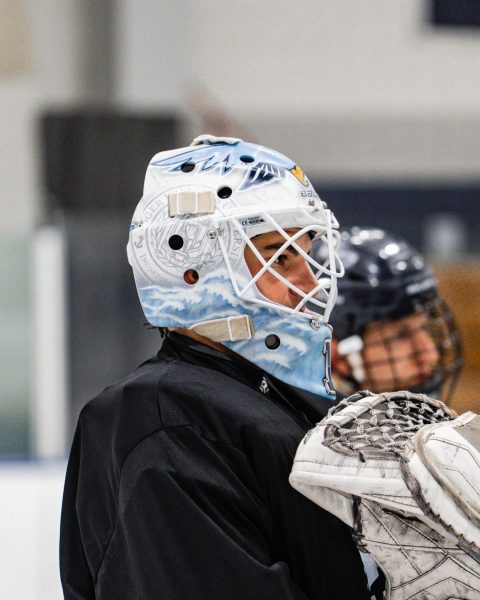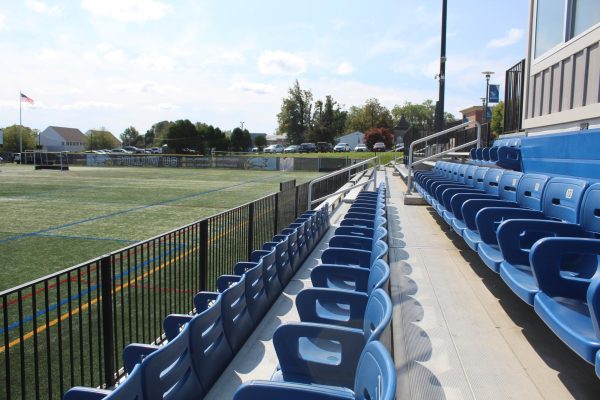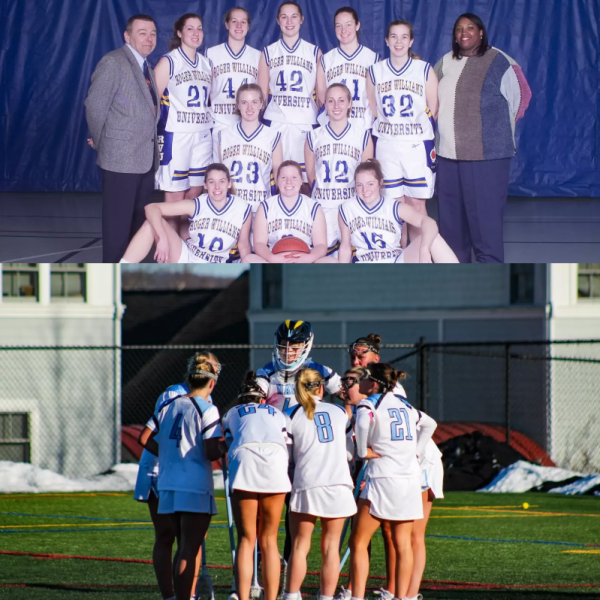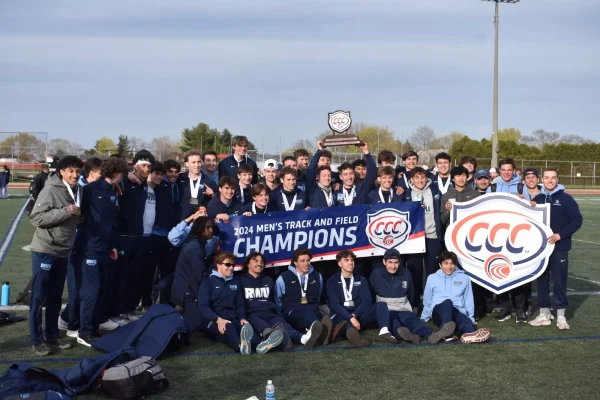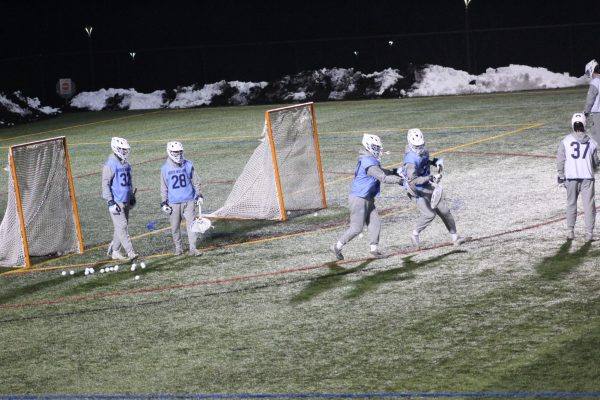What it means to be a goalie
Epke Paquette | Sports Manager
Goalkeepers play a distinct role when it comes to the function of their teams. According to the RWU women’s soccer, men’s soccer, and women’s field hockey goalies, this is due to their all-seeing position on the field, acting as God’s eye to their teammates.
“It’s the position with the least amount of action,” said senior Edmund Geschickter, starting goalie on the men’s soccer team.
“For most of the game you don’t touch the ball, but when it does come to you it’s in very consequential moments. It’s a high-pressure position,” Geschickter said. “You have a responsibility to inform your teammates of what they can’t see.”
Women’s soccer goalies, sophomores Morgan Strassbrug and Morgan McCutcheon, share similar thoughts.
“We basically have to run the team at the back,” Strassburg said. “When we’re yelling the entire game we’re telling them where to go, who’s open for them to pass too. We’re helping them see the things that they don’t see.”
“We’re on the field but we’re also not, if that makes sense,” McCutcheon said. “The coach sees things from a side view, but we see everything.”
In addition to being a different physical position, being a goalkeeper constitutes a different mental aspect of the sport.
“It’s a very different mental game,” McCutcheon said. “It’s fun. There’s a certain amount of responsibility that comes with it. Your team looks at you, you don’t have people behind you. You’re the last line of defense.”
Callie Flanagan and Sophia Mottola, sophomore goalies on the women’s field hockey team, agreed with McCutcheon.
“It’s a completely different position,” Flanagan said. “I love the challenge of it. Every day when I get in those pads I feel like a different person. Once I put that helmet on, I am in the zone. I like taking the shots and I like the science of the game. It keeps me on my toes.”
“I feel a lot more intense in-goal than I feel like I would be if I was on the field,” added Mottola. “It’s different and you have to be intense when you’re a goalie. You have to be in the zone.”
“It’s satisfying to save somebody’s shot,” Geschickter said. “If they score, they get a whole minute of running around the field and all this ‘glory glory, you are the best.’ It’s fun to take that away from them.”
Despite positive aspects, the goalkeeper position brings goalkeeper injuries with it. All the fall sport goalies cite jammed or broken fingers, perpetual turf burn and hyper-extension as continuously occurring afflictions.
“When you dive, everyone’s like ‘that’s gotta hurt!’ but you don’t really think about it until you see the bruises the next day,” Strassburg laughed.
“I got kicked in the face really hard and got a concussion last year playing Salve,” McCutcheon said. “That was pretty bad. I was out for a couple weeks with that.”
“I’ve had some weird ones,” Flanagan said in reference to her past injuries. “I had tendinitis in my rotator cuff from diving too much and I came into last season with a hip flexor injury. It’s about taking care of your body and stretching out.”
Despite all the physical unpleasantries that come with the job, these goalies all said the hardest part of their position is keeping a level head.
“It’s really easy to get into your own head about it, even if it’s not your fault. But it is very easy to say ‘this is on me,” Mottola said.

